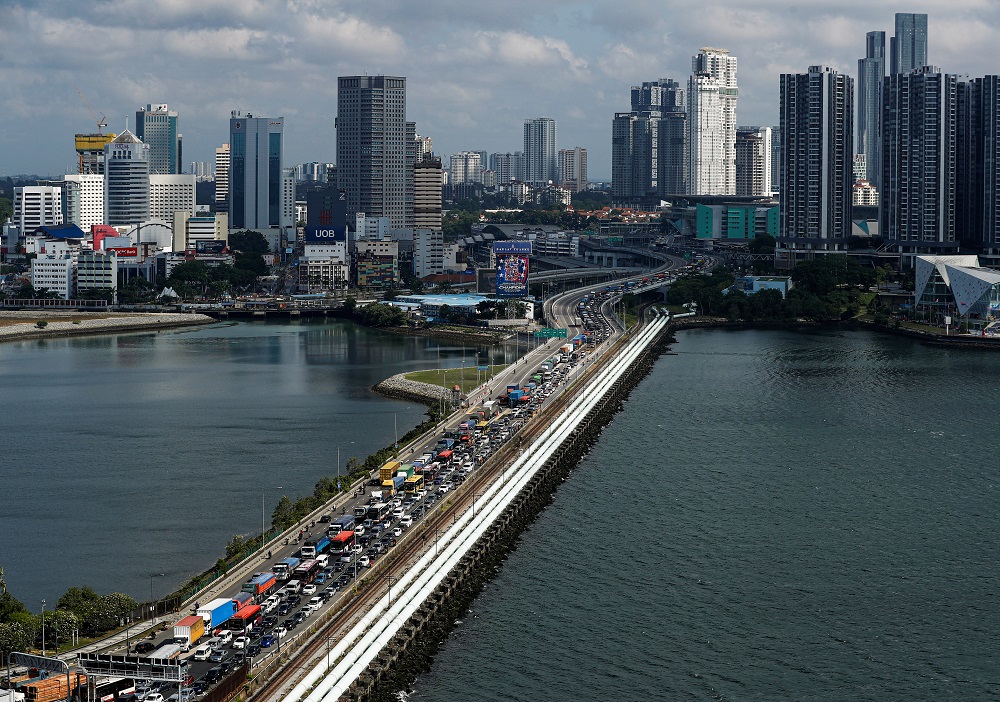KUALA LUMPUR, March 28 — All classes of public transport vehicles plying between Malaysia and Singapore will be allowed to operate from April 1 in line with the reopening of land borders between the two countries.
Transport Minister Datuk Seri Wee Ka Siong said all public transport operators in the country can now make early preparations to renew their Road Transport Department (JPJ), Land Public Transport Agency (APAD) permits or licences or with the Singaporean authorities.
“However, preparations or the start of actual services will all depend on whether the operators are ready,” he said in a statement today.
Wee said the public can obtain further details on the services from the operators.
He also reminded all cross-border transport operators to comply with all existing standard operating procedures (SOP), including preparing QR codes in all operating vehicles.
He said operators must also ensure that the QR code is scanned by passengers for tracking purposes (contact tracing). However, in line with current regulations, operators need not check the vaccination status of passengers.
Wee said operators or drivers of public transport vehicles can refuse to provide services to any traveller who does not comply with current health SOPs such as the wearing of face masks.
He said it was the responsibility of travellers to ensure they have a valid MySejahtera app in their smartphones and meet all the stipulated travel conditions, adding that failure to do so could result in them being subject to compounds or penalties under existing laws.
Wee said travellers who use private cars to Malaysia are reminded to register and obtain a foreign vehicle entry permit (VEP) via https://vep.jpj.gov.my/.
“Vehicles that have successfully registered will be provided with RFID-VEP tags which are also equipped with the Touch ‘n Go e-wallet application for the purpose of paying Road Charges (RC) and tolls.
“Besides that, all Singapore-registered private cars are also required to pay RC (RM20 per entry) when entering Malaysia (via the entrance at Sultan Iskandar Building, Johor Baru and Sultan Abu Bakar Complex in Tanjung Kupang, Johor Baru).
He said for vehicles that have been registered and fitted with RFID VEP tags, RC payments can be made through Touch ‘n Go e-wallet already incorporated in the RFID tag while for those not registered, payment can be made using Touch ‘n Go card.
Wee said all private Singaporean registered vehicles need to ensure their Touch ‘n Go cards were valid and have sufficient balance in their e-Wallet or Touch ‘n Go card to pay the RC to prevent traffic congestion and delays when entering Malaysia.
“MOT (Ministry of Transport) hopes that the reopening of the Malaysia-Singapore borders will not only boost economic growth of both countries but also strengthen family ties and friendship between Malaysians and Singaporeans,” he added.
Malaysia and Singapore have agreed to reopen their land borders for fully vaccinated travellers beginning April 1, without the need for them to take Covid-19 pre-departure and arrival tests or be quarantined, in line with the transition into the endemic phase.
This applies to all categories of travellers and the use of all types of land transport, including all classes of cross-border public transport vehicles such as stage buses, express buses, tour buses, workers’ buses and cross-border taxis. — Bernama



















